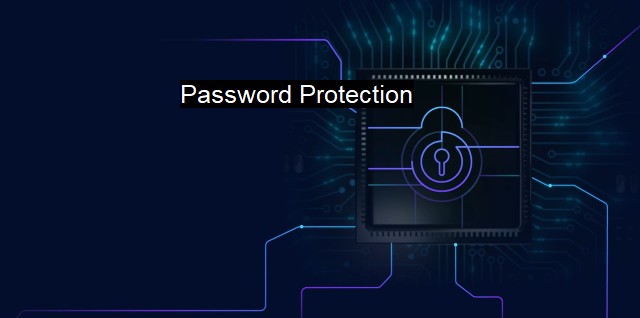What is Password Protection?
Protect Your Digital Fortresses: The Importance of Password Protection and Best Practices for Cybersecurity
Password protection is a fundamental aspect of cybersecurity protocols and antivirus software. It is a security process that involves safeguarding information by utilising a sequence of characters, commonly known as a password, to authenticate a user's identity to grant access to a system or data.Password protection is used as a defensive measure against unauthorized access to sensitive information and systems. With the surge in cyber threats and the sophistication of attack mechanisms, password protection has become an essential part of securing online activities.
Password protection typically involves the use of usernames and passwords. The username is usually simple or user-friendly, serving merely as a user identifier. The password, on the other hand, is supposed to be complex and known only to the user to ensure confidentiality. It should be somewhat difficult for another person to guess or crack using brute-force attacks, which is why it should include a mix of alphanumeric and special characters.
Importance of the passwords cannot be underestimated, as they provide the initial line of defense against illegal access — defending not just user applications and information, but also the integrity of the overall system. If a password is compromised, a cyber attacker can perform harmful activities, like steal confidential information, manipulate data, install malicious software or implement a ransomware attack, a type of malware that encrypts files or locks up systems until a ransom is paid.
One of the key aspects of safeguarding passwords is password encryption. Password encryption converts a password into unreadable text, which can be decrypted back into the original password, only using a specific key. This process protects passwords from being stolen during sending and receiving over networks or while storing in databases.
Various antivirus programs offer real-time password protection. They ensure that your device is safeguarded against malware that might attempt to log your keystrokes — a common technique used by cybercriminals to steal passwords and other confidential information.
There is a fundamental flaw in this first line of defense. Human failure, such as using easily predictable passwords, repeating them across multiple sites, or failing to change them regularly can make these defenses like loose cannons in cybersecurity. Hence, users are encouraged to have unique, unpredictable passwords, possibly managing them with password managers which provide a way to use strong, complex passwords without needing to remember them all.
Advancements in technology have spurred on the development of more effective and efficient password protection mechanisms. These include two-factor or multi-factor authentication (2FA/MFA). With 2FA/MFA, users are required to provide two or more pieces of evidence (factors) to verify their identity. Typically, this involves something the user knows (password), something the user possesses (a mobile device), and something the user inherently is (biometrics like fingerprints or facial recognition).
To summarise, password protection plays a central role acting as an initial barrier against malicious entities. It involves the smart use and secure management of passwords, bolstered by encryption and antivirus tools. Despite the shortcomings associated with the human element, formidable security layers can be established by combining password protection with more robust verification systems like multi-factor authentication.

Password Protection FAQs
Why is password protection important in cybersecurity?
Password protection is important in cybersecurity because passwords serve as the first line of defense against unauthorized access to our digital assets. Without proper password protection, cybercriminals can easily gain access to sensitive information such as financial data, personal information, and intellectual property.How can I create a strong password?
To create a strong password, you should use a combination of uppercase and lowercase letters, numbers, and special characters. Avoid using common words or phrases, and do not use easily guessable information such as your name, birthdate, or address. You should also use a different password for each online account and change them regularly.Is it safe to use password manager software?
Yes, password manager software can be safe to use as long as you choose a reputable provider and take necessary precautions such as using a strong master password and enabling two-factor authentication. Password managers can help ensure that you use strong and unique passwords for every account and make it easier for you to manage and update them regularly.Do antivirus programs have password protection features?
Some antivirus programs do have password protection features, which allow you to secure access to certain features or settings in the software. For example, you may need to enter a password to modify the antivirus scanning settings or to access the quarantine area. However, these features are not designed to protect your other online accounts or personal data, and you should still use strong passwords and best security practices to protect those assets.| | A | | | B | | | C | | | D | | | E | | | F | | | G | | | H | | | I | | | J | | | K | | | L | | | M | |
| | N | | | O | | | P | | | Q | | | R | | | S | | | T | | | U | | | V | | | W | | | X | | | Y | | | Z | |
| | 1 | | | 2 | | | 3 | | | 4 | | | 7 | | | 8 | | |||||||